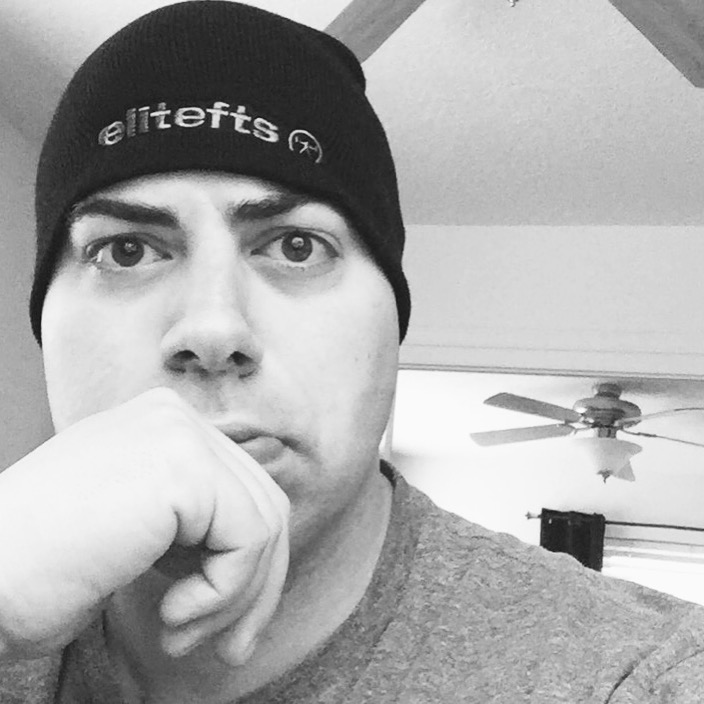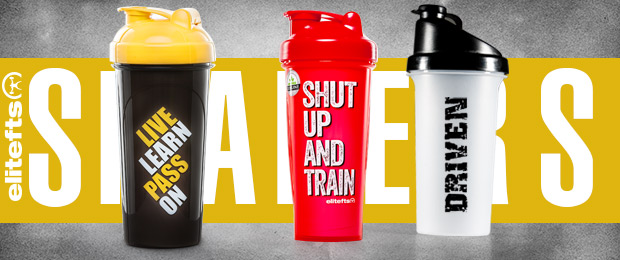
The following is an account of my personal and professional journey to completing my doctorate degree and the events that have occurred during and leading up to the present. While others in a variety of fields have attained this terminal degree, I’d venture to say that they have experienced similar situations or experiences unique to them. Although many of my friends and colleagues have attained higher levels of education (i.e. other doctorate degrees in the hard and clinical sciences, business school degrees, law degrees, medical degrees and even entrepreneurships), it goes without saying that my experiences to obtain a doctorate aren't a global representation of all fields or those within the exercise sciences. Nonetheless, these are my experiences, the challenges and obstacles that I had to face, and the sheer power to overcome them. It is within this series of articles that I hope everyone is able to relate in some form or fashion to their own life, work, school, family, training and even business ventures. This is my journey.
In discussing the trials and tribulations of obtaining my doctorate degree, I ended part two with the arduous and time consuming process of obtaining approval for my study. For those unaware, every master's and doctorate student must propose his study to his specific committee. The committee asks questions, provides feedback and makes sure that you know everything about your project before you proceed.
My dissertation proposal was a big success and marked the end of an eight-month period of hard work filled with monastic obsession and relief. Things were looking great, and I was finally back on track. Once your committee approves your study, you have to submit mountains upon mountains of required paperwork to the university's institutional review board (IRB) for approval. This is required for all studies across the board at all colleges and universities. After you submit all necessary requirements online, and depending on the nature of your project, it typically takes one to two months before you receive approval. Some may get lucky and obtain approval after three to four weeks. For me, it didn't actually happen that way.
The Nightmare From Hell
After proposing my topic in late August 2013, I submitted my materials online through the university IRB system in mid-October 2013. At this point in time, it’s just a waiting game. Many don't understand that one of the biggest disadvantages of a larger flagship academic institution is how much can truly be out of your control. Specifically, your committee members and department chair only have so much authority, and many times you (the student) are at the mercy of other people’s whims. This isn't always a bad thing, but it’s part of the process, challenge and rigor within higher education and something many in the business world don’t fully understand.
MORE: The Long Road To Victory: My Journey to a PhD
As mentioned at the end of part two, my newest committee member “CK” was going to be what’s called the principle investigator (PI) for my dissertation. Doctorate students weren't allowed to be the PI for their own projects because a senior faculty member was required to be the principle name on all the paper work, followed by the rest of the study team members. “CK” was the PI for my study and what was originally submitted to the IRB. Toward the end of November 2013, we received what would be our first of several rounds of madness and the beginning of the nightmare from hell from the IRB. It was at this point in time that an original six- to eight-week approval time frame started an arduous, painstakingly horrendous nightmare that lasted an entire eight months.
"CK" was very instrumental, and his insight and leadership with both the research and the writing process were everything that I needed. He and I were always on the same page and have been since day one. It’s helpful to mention that while at his previous institution (before UNM), "CK" was unfortunately wrongfully accused of some laboratory study methods and practices within the program that generated news headlines. While I’m not at liberty to speak of the details, I can say that I personally have never had an issue in being friends with him or working with him for over three years. None of his other colleagues within the industry with whom he has worked with numerous times over the years has had any issues either. In this particular circumstance, a graduate student became an official whistle blower at the same university where "CK" was a faculty member and ultimately made life difficult for "CK" until it was just time to leave and go elsewhere. Our department at UNM was very understanding and felt compelled to provide him an opportunity to develop the line of research he had so passionately developed and published over the years and had started to work with other graduate students on including myself.
Now fast forward to me trying to obtain approval for my study. Once we received our first round of edits, it came to our attention that we (my study and team members) were red flagged. Let me preface this by saying that the IRB is a committee that consists of five or more members with varying expertise and diversity. They are responsible for reviewing and approving human subjects research activities on behalf of institutions. The IRB (at UNM) was made up of other faculty and staff members, medical professionals and even those without doctorate or medical degrees that met two to three times a month to approve all university-based research. One of my own committee members was actually on one of those committees but coincidentally wasn't on mine, which was understandable. It’s noteworthy to mention that while most in the general population and those in the industry have an overall consensus as to the types of research conducted within the exercise sciences, it’s safe to say (assuming reasonable intelligence) that my specific IRB committee seemed to be absolutely clueless about the kinds of study methods we wanted to use.
Our first major edit, aside from the meticulous revisions we had made to the protocol, consisted of the IRB asking us ridiculous questions about our study. For example, they asked us what major muscle groups were involved with the squat, how many days per week our subjects would train and what "recreationally trained" meant. There were certainly more of these types of questions despite the fact that the study methodology addressed all specifics in grave detail. After the first round of edits we received more edits. Once I submitted a given round of edits, it was just a waiting game, with each round lasting about four weeks (sometimes more) until we received the next round of feedback.
During late spring and early summer 2013, we received a grant from the NSCA to help pay for the study along with additional lab equipment, and in part, other potential studies. During late November 2013, the IRB informed us that due to the previous circumstances involving "CK" (as previously mentioned above), we were forced (by the IRB) to remove him from the study and replace him with Dr. Kravitz as the PI. This was the first major incident that had occurred and was only the beginning of what was yet to come.
I ended up waiting over the Christmas holiday to hear something back from the IRB, but it wasn't until late January to early February 2014 that I received any online updates. I began to get increasingly frustrated because time was passing by and actual data collection was nowhere in sight. In late January 2014, and due to our forced hand, we removed "CK" because he wasn't a member of the research team and, as a result, had no interaction with the human participants surrounding our project. Now that Dr. K was the new PI, he and I took numerous trips to the IRB office to obtain further explanation as to why we had to remove "CK" from all paperwork and documentation. We never fully received a thorough explanation even from the chair of the IRB itself. In fact, there were numerous attempts for "CK" to be cleared from participating in any ongoing research. However, even higher ranking academic officials trying to intervene and overrule the IRB were unsuccessful, mainly because the main university establishment and IRB are two different authorities with their own policies, politics and red tape.
My home life wasn't going well, which created additional emotional anxiety and stress. There were more than enough times when I wasn't happy coming home and never truly knew what to expect when I walked in the door. I was living with somebody who, while generally supportive and helpful, never fully understood what was going on, despite numerous attempts at communication. Some of this was my responsibility, but how many times can you explain the same things over and over without feeling that it isn't “your fault?" How many times could I be made to feel guilty about a process that was never in my full control when I could only do my part (which paled in comparison)? Keep in mind, I was trying to obtain approval for my study, start data collection, continue to write articles and make extra money, and I had just completed writing three book chapters for a European textbook. There came a point when I just stopped trying to explain any updates and just tried to focus on the matter at hand.
As the weeks progressed and the edits continued to increase, we were then informed by the IRB that we had to withdraw blood samples from the study. This was a key component to my research by way of assessing a good marker of the muscle damage process accompanied by eccentric muscular contractions, particularly when incorporating a longer eccentric duration. After my mentors and I decided to remove all blood samples, we replaced them with a pain analog scale so that the subjects could subjectively assess their muscle damage response. Although not the most accurate measure, there were limited options that elicited free cost.
Once we resubmitted everything (again) through the online system, it was over a month before we heard anything back. I remember Dr. K and I sat down to formulate a plan. We emailed the chair of the IRB committee. At the end of the email, we stated the following in efforts to facilitate an early approval status: “Dr. XXX, As you know, due to circumstances, Jonathan Mike has been delayed in starting his dissertation study. I do hope we can continue fluidly as we address the study comments/concerns so we may be able to help Mr. Mike begin his dissertation study.”
In mid-March 2014, I still didn't have approval even though the process had started in October 2013. While waiting continuously for approval and during the previous weeks and months of making the corrective changes, I displaced my time by doing other projects. I learned a good life lesson here during this period. When things don’t go your way, most people either give up or sit around and do nothing. I put my time to good use, and throughout this eight-month hellacious nightmare (even after we received approval), I was very productive.
Here's a list of the things that I accomplished during the waiting period, during data collection and throughout the 2014 year:
Muscle Magazine:
- Wrote 10 articles (two of them feature articles)
- Did contributing interview for Muscle Magazine article
Bodybuilding.com:
- Wrote three articles
Muscle and Body:
- Wrote "Six Weeks to Awesome Power" article
- Wrote contributing article (fat blast)
- Wrote two front of the book items
Experience Life magazine:
- Wrote contributing article interview
Muscle and Performance:
- Wrote contributing piece on overhead pressing
Oxygen:
- Wrote feature article for non-stimulant fat burner
Daily Burn:
- Wrote contributing interview
elitefts™:
- Wrote nine articles/columns
- Wrote training program for Make-A-Wish Foundation manual
- Did 12 monthly Twitter chats
Podcasts:
- Did 10 total podcasts as co-host or guest (nine of them for Iron Radio)
Talks/Presentations:
- Did eight lectures/conference talks (two undergraduate lectures, one graduate level lecture, five conference talks)
- Filmed exercises for various talks
Academic stuff:
- Wrote three peer review publications
- Applied for two grants: 10,000 funded and $500 non-funded
- Wrote another book chapter (fourth completed chapter in a year for five total)
- Served as student adviser (two at UNM and two at two different schools)
- Reviewed two journal articles
- Completed four months worth of data collection (31 subjects and all the stress)
- Completed all data entry
- Created ideas for four future research studies based off dissertation
- Gained more lab skills
- Completed formatting for dissertation for journal article submission
- Applied for three jobs

Pic taken on a cold snowy day in February 2015 in the mist of the dissertation process wondering when the end would come.
Far From Over
I'm not providing this list to boast, and this list isn't what I had to overcome during this process. The point of providing this list is to understand that when one door closes, others can open. When things don’t go your way, make more use of your time and be productive. You only have control of yourself and your surroundings, not other people’s behavior, decisions or negativity, however it may affect you. There is only so much you can do. Therefore, it’s better to put yourself in a position that makes you feel more genuine, happy and accomplished even when life buries you down to no avail.
My home life had now become an overwhelming emotional strain. Multiple times a month, I didn’t want to come home, and many times I felt that I didn’t have a happy home life (coupled with arguments, alcohol and misunderstandings). On numerous occasions, I would be in the car going to campus or returning from errands or the gym and I would relay and create any given situation in my mind that may arise and that I felt I needed to prepare for mentally and emotionally (regardless if it occurred or not). This was all in anticipation for when I turned the doorknob. As a result, it affected my work, energy, focus and sleep. I specifically remember two occasions where I was home alone and my girlfriend (at the time) was out of town, and I ended up having a nervous breakdown, hyperventilating and just crying. I felt about as lonely as I ever could remember during those moments. I remember I went to church a few times just to establish stillness, love and peace. Every day wasn't like this, but it occurred far too regularly and ultimately took its toll.
We finally received approval in April 2014. I was thrilled and finally saw a little light at the end of the tunnel. However, three weeks after we received approval, we were unfortunately informed that the IRB had approved us by mistake. This was probably the ultimate blow from the previous seven months. In addition to not obtaining approval, the fact that it took three damn weeks before we were even notified of such wrongdoing just added more salt to the wound. We received a call from the chair of the IRB. Although he wasn't on my specific committee, he was at least professional enough to call me and Dr. K and apologize on behalf of the system. Considering the IRB didn't meet until after May graduation, it wasn't until June 2014 that we received our official approval letter. Finally, this eight-month nightmare from hell had ended. However, considering the majority of students leave during the summer break, we were limited with study participants and decided to have everything ready for subject recruitment come fall 2014.
We had a total of eight other study team members who were originally going to help collect data once we received approval. Due to extenuating circumstance, many graduate students had other commitments and had made other arrangements. Therefore, the original team of eight became four with a new team member, Chris, who was finishing up his undergraduate degree and needed some research and lab experience. After submitting his approval forms last minute in July 2014, he was added as the fourth study team member.
The Irregular Hallucinations
While on the topic of stress, it’s noteworthy to mention that periodically I exhibited what I call “hallucinogenic nightmares.” They're probably better known as academic nightmares. These started in summer 2013 and lasted two years until the summer of 2015. They occurred in spurts every several weeks to several months. Although I was taking some sleep supplements and a Xanax prescription, which I took mainly for sleep to calm the hell down, I would wake up with rising panic in the middle of the night, at anywhere from 1:00 am to 4:00 am, worried about life, school, failing, missing assignments, missing article deadlines or data collection scheduling issues. These dreams came in various guises. On one occasion, I had dreams of missing an exam or a final that I actually took years prior. Each episode was different but centered around the theme of being behind in my work and life or being unprepared for something. There were a few times I actually freaked out and got up between 1:00 am and 3:00 am. I was frantic with a cold sweat and had a resting heart rate of about 115 beats/per/minute. I was actually working and thinking about what was wrong, going through a short checklist and marking off items on the list. After realizing that it was a dream, I went back to sleep as best as I could.
MORE: The Long Road To Victory: Dark Ages
Due to life stress, home stress and dissertation stress, I ended up seeing a clinical psychologist on UNM’s campus for a year in efforts to gain additional third party perspective and help guide me through the various processes at large. It most certainly helped and created a better sense of serenity and composure. I even continued to go after I had defended my doctorate. Perhaps it was a combination of multiple life and emotional stressors, but thankfully, I haven’t had these occurrences since.
The Shining Light
The summer of 2014 brought some much needed mental flossing. I was able to speak at a few conferences and prepare all documentation and procedures for data collection, as the fall semester was starting. After the second week of the fall 2014 semester, data collection had now begun. I went to every single weight training class and program course to recruit subjects, and I created recruitment flyers and posted them everywhere (yes, even at the urinals and above the toilets). I sent out a list serve to over 600 people and just didn’t stop for four months straight. Every time we recruited a new subject, and during the consultation, we always asked subjects if they knew of others friends and classmates who might be interested. Two subjects turned in eight names, which turned into fifteen names, which turned into forty names. We originally had 40 subjects. However, anybody who performs training studies will tell you to always aim high in efforts to account for subject attrition. This was my full-time job for four straights month.
During this four-month period, I also continued to write articles for various fitness and bodybuilding magazines and elitefts™ and spoke at three conferences. Four to five times a week I was in the lab doing data collection and collecting data on multiple subjects each day for most of the day. Along with the help of team members Chris and Nathan (who helped tremendously), I trained the subjects in the morning, came back in the afternoon depending on their schedule and then drove back home another 20 minutes to eat and train. Then I came home and did more work (most of the time). This was the repeating pattern for four long months. Nathan and Chris were very instrumental during this process. They facilitated during their opening times around their own work schedule and when I was away speaking at conferences and also posted data collections, data analysis and interpretation. I was proud to say that at the end of this period, I had a newfound appreciation and respect for training studies. The fact that I was able to complete 31 subjects (all previously trained and all accounted for) through four weeks of eccentric training in addition to traveling and writing articles and all the stress that comes with that was nearly unheard of.
The “four-week training study” took four months from start to finish. During the period of data collection, home life was less stressful (as it needed to be) in order for me to focus on the dissertation. It was now time for a holiday break, but it wasn’t over just yet.
Stayed tuned for the conclusion of this series, part four!











